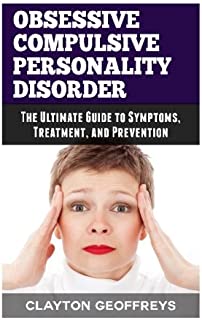Obsessive-Compulsive Personality
Obsessive-compulsive personality disorder (OCPD) is a personality disorder that’s characterized by extreme perfectionism, order, and neatness. People with OCPD will also feel a severe need to impose their own standards on their outside environment.
Cluster Number:
Wiki Number: PW139
Diagnosis: Obsessive-Compuslive Personality Disorder
US Patients: Most commonly diagnosed personality disorder
World Patients:
Sex Ratio: M2;W in diagnoses
Age Onset:
Brain Area:
Symptoms: obsessed with rules, order, perfectionism
Progression: Perfectionism, inability to delegate, rigidity and stubborness are stable; miserly spending and devotion to productivity.
Causes: Parents who provided necessities, but not wants nor desires may be factors, including 50% heredity.
Medications:
Therapies: CBT, especially group CBT shows less anxiety and depression, increased extraversion and agreeableness, reduced neuroticism.
Youtube Video: Perfectionism vs. OCPD vs. OCD
Amazon or Library Book:
Obsessive Compulsive Personality Disorder
Click the book to link or buy from Amazon.

